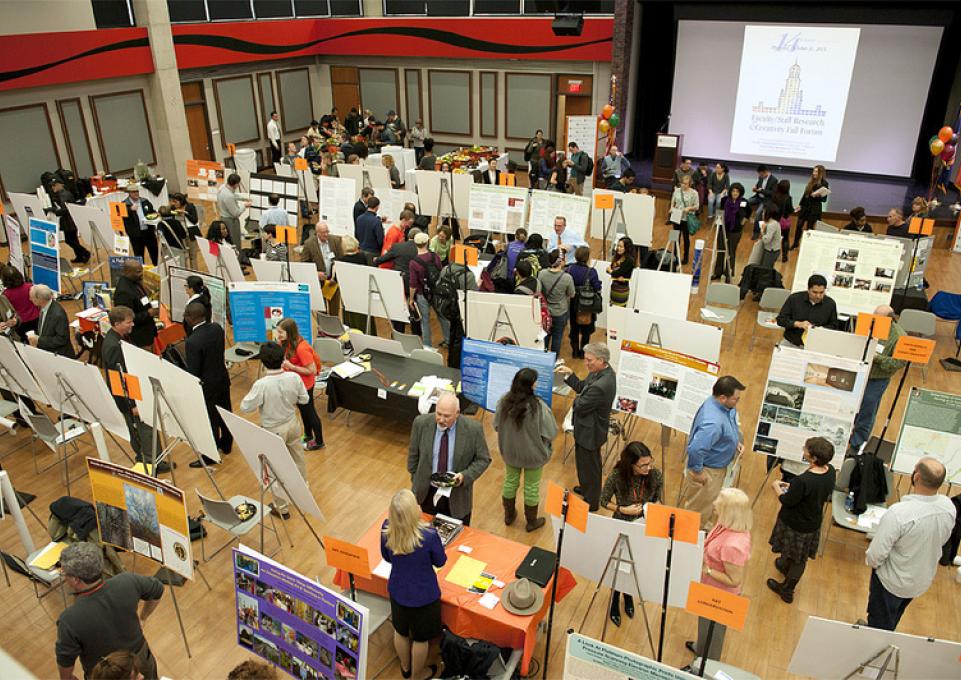
Over the past year, SUNY Buffalo State faculty have been quietly pursuing research ranging from the effect of omega-3 fatty acids on brain health to student and faculty perceptions of academic rigor to the growing “ethical consumerism” movement.
These disparate disciplines converged under one roof on October 31 during the 14th annual Faculty/Staff Research and Creativity Fall Forum. The Campbell Student Union Social Hall was packed with 155 participants showcasing their research and creative projects, flanked by posters mapping measurements and meaning. Approximately 250 visitors—a mix of faculty, staff, and students—wandered from table to table asking questions and reading handouts.
The Research and Sponsored Programs Office, in conjunction with the Research and Creativity Council and the Academic Affairs Office, sponsored the forum. Its mission is to develop and encourage faculty and staff research and creativity endeavors, make grants more accessible, and provide opportunities for collaboration between departments.
“There were many impressive projects this year. I was struck by the number that incorporated the Year of the Teacher theme, which is a reflection of Buffalo State’s legacy to lifelong learning,” said Rita Zientek, interim dean of the School of the Professions. She led the fall forum’s planning committee with Mary Kren, manager of communication and learning development in Research and Sponsored Programs.
Some of the research and creative projects featured at the forum are well-known on campus; many are not. Probably not everyone knows that Dermot Coffey, associate professor of physics, engaged in collaborative research with M. Jones at the Center for Comparative Research on the magnetic order of neutrons or that Alice Pennisi, associate professor of art education, took six graduate students to Thailand in the summer of 2012 to enhance their understanding of different cultures.
Some of the findings are concrete, such as the artifacts anthropology students excavated from the barracks of soldiers stationed at Old Fort Niagara during the War of 1812. Others are more abstract, such as the study on work-life balance and opportunities for advancement of women and men working in student affairs.
Because the usual site of the fall forum, the Houston Gym, is undergoing renovations, the forum was held at the Campbell Student Union Social Hall this year.
“Even though the space was smaller, it still worked well,” Zientek said. “We’ve been increasing the number of participants every year since the forum started, but this year it dropped a little due to space. As always, attendance was robust.”
Sources of funding for the research endeavors included the National Endowment for the Arts, the National Institute of Drug Abuse, the Department of Justice, and the National Research Council.
